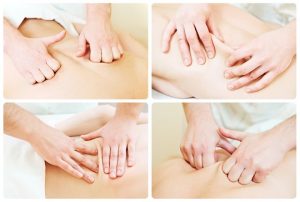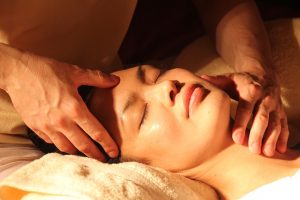Live Example of the Benefits of Massage on Mentally Challenged People
Massage therapy is a boon for mentally challenged people who have more challenging behaviours compared to many. However, when massage therapy is applied to such people, both their mind and body undergo relaxation. People with profound intellectual disabilities often fail to express their emotions. As a result, they become victims of depression which further makes them aggressive. To date, many studies have been done to assess the therapeutic value of massage.
To find out how effective is massaging on intellectually disabled persons, several studies were conducted on seven males and thirteen females aged between 5 and 62. Many of them had aggressive or stereotypic self-stimulation behaviour.
Process of Intervention
 In hospital wards, residential homes, and in special schools, these studies were carried out. It has been found during the research that almost all the patients suffered from depression and/or anxiety. To compare the effects of different massage techniques, the researchers used multi-sensory rooms. A series of massages were applied to the subjects where each session lasted for between 10 to 45 minutes. Either daily or weekly, these subjects were given massages, with their hands being the frequent location of massage.
In hospital wards, residential homes, and in special schools, these studies were carried out. It has been found during the research that almost all the patients suffered from depression and/or anxiety. To compare the effects of different massage techniques, the researchers used multi-sensory rooms. A series of massages were applied to the subjects where each session lasted for between 10 to 45 minutes. Either daily or weekly, these subjects were given massages, with their hands being the frequent location of massage.
Among them Gale and Hegarty in 1996, clients received the treatment over a 3-month period whereas Solomons in 2005 gavethe treatment of longest duration, 8 months. In a certain case, massage was given regularly for 18 months to determine its efficacy.
Outcome

As soon as the intervention was completed, subjects having severe challenging behaviour started to behave calmly in most of the circumstances. Their self-injuring behaviours were also reduced considerably. Apart from Hegarty and Gale, Dossetor et. al., in 1991 also showed a progressive decrease in his aggressive behaviour. Sadly, two subjects suffering from autism didn’t undergo the whole process as they hated all kinds of touch therapies. These studies highlight the fact that a maintenance programme is important in making progress in their behaviour.
From these studies it is clear that massage therapies bring positive emotional and behavioural changes. Using massage, one can make mentally challenged people feel special due to the caring attitude that is shown during the session. Attention and physical touch involved in massage play a significant role in alleviating the depression from intellectually disabled individuals. Moreover, massaging relaxes the muscles which in turn, reduce anxiety and stereotypic self-stimulating behaviour. As restless people cannot experience relaxation, the massage replaces different kinds of maladaptive behaviours in them.
